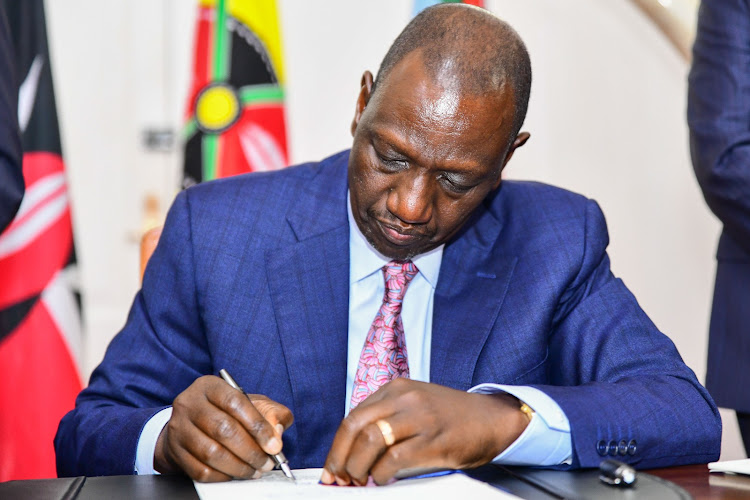The proposed Finance Bill 2024 has been criticized as burdensome for Kenyans and detrimental to the country's economic growth. During a briefing organized by Deloitte Kenya to analyze the bill, experts highlighted significant economic and fiscal impacts, particularly in a nation already grappling with high taxes.
Fredrick Omondi, Deloitte East Africa Tax and Legal Leader, expressed concerns over the government's tax-raising measures. He emphasized that increasing the tax burden would reduce purchasing power and raise business costs, negatively affecting both citizens and the economy.
"The frequent changes in tax policy create additional risks for businesses, increasing compliance costs. While it's important to grow tax revenue as a percentage of GDP, this should not be achieved by overburdening existing taxpayers and businesses. Instead, focus should be on enhancing compliance and growing the economy to improve incomes, thereby generating higher taxes," Omondi stated.
Omondi also suggested reviewing measures introduced in the Finance Act 2023, which have posed significant challenges. Notable among these are the imposition of e-TIMs for expense deductibility, abolition of penalty and interest waivers, increased frequency of withholding tax remittance to KRA, and the tax burden on employees from the Affordable Housing Levy (1.5% of gross emoluments), Social Hospital Insurance Fund (2.75% of gross pay), new tax bands (32.5% and 35%), and increased National Social Security Fund (NSSF) contributions.
Gladys Makumi, Deloitte East Africa Financial Advisory Leader, highlighted the negative impact of new levies on essential household items. With inflation affecting salaries and wages, these levies could reduce private consumption, countering efforts to reduce Kenya’s debt reliance.
Peter Njenga, Deloitte East Africa Tax and Legal Senior Manager, noted that taxing alcoholic products based on alcohol content would decrease excise duty on low-alcohol beverages like beer but increase it on high-alcohol spirits and wines. He also warned that an eco levy on office equipment, smartphones, and computers would reduce affordability, increase business costs, and harm the welfare of ordinary Kenyans.
The Finance Bill 2024 proposes the introduction of Advance Pricing Agreements (APAs), allowing Multinational Enterprises (MNEs) to agree on transfer pricing mechanisms with KRA before transactions occur. Doris Gichuru, Deloitte East Africa Tax and Legal Partner, mentioned that well-implemented APAs could provide certainty and reduce tax disputes.
Published on May 9, 2024, and tabled before the National Assembly on May 13, 2024, the Finance Bill 2024 proposes amendments to several Acts, including the Income Tax Act, the Value Added Tax Act 2013, the Tax Procedures Act 2015, the Tax Appeals Tribunal Act 2013, the Excise Duty Act 2015, and the Miscellaneous Fees and Levies Act 2016. The public has been invited to submit comments by May 28, 2024, before the bill's potential approval in June.
Amid widespread dissent, many Kenyans have urged MPs to reject the bill or amend it to favor taxpayers. Despite the outcry, President William Ruto remains firm on increasing taxes to achieve national self-reliance.

